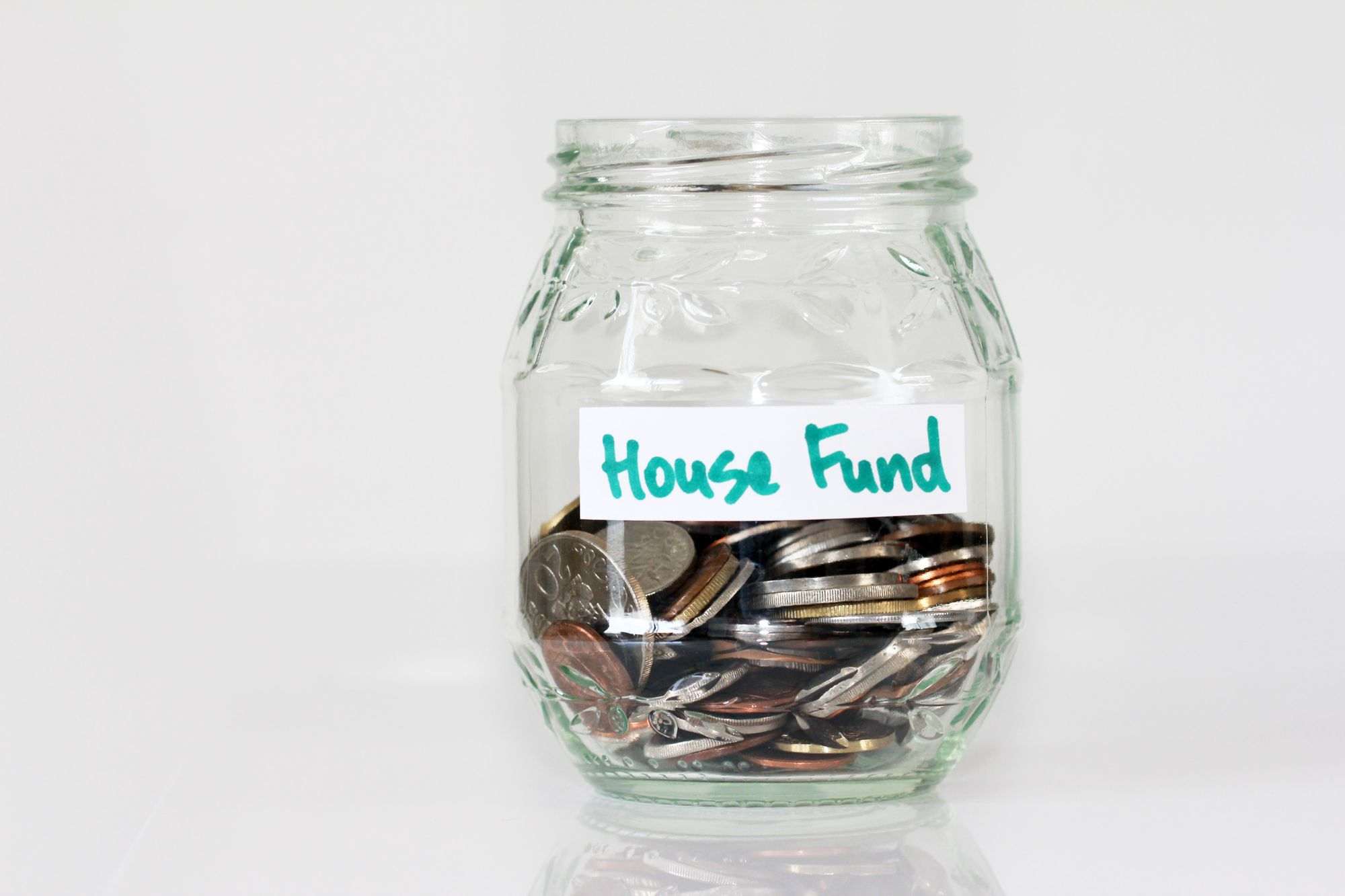20 top tips on how to keep your rental deposit

These days some landlords are asking for ever larger sums of money as a rental deposit. The average is around 4 weeks rent, but we’ve heard stories of up to 6 months(!) With so much money at stake, it’s important to take a few steps to maximise your chances of getting the money back when you leave – here are our 20 top tips.
The Starting Principle
1. Treat it like your own
It goes without saying, but first and foremost you should be careful with your landlord’s things. Accidents happen, but making sure that you and your housemates treat your house and any furniture provided by the landlord, as if it were your own, is a good start towards getting things right.
Simple things like becoming a ‘shoes off’ house, or hiding away anything fragile when you have a party are a good start. Fundamentally you need to treat the place with respect.
Although this is an important starting principle, it will by no means solve all your issues. We’ve broken down our other tips into the different stages of a typical rental.
Check out our guide to making your rental home '10 tips to make your rental flat feel like home'
When you move in…
2. Channel your most fussy friend
Moving is pretty stressful, especially if you’re moving in with some people you don’t know that well. It can be easy to sit back, and try to be the nice, relaxed housemate who goes with the flow, but there will be plenty of time for that later.
Think of that friend you have who has crazy attention to detail, is a complete perfectionist, and isn’t afraid to show it. You need to channel that spirit, and act like you were them for the first few hours when you move in.
Ideally get into the house to inspect it before moving any of your things in, and look for every single thing which might be wrong. Remember, even that small chip in the wall might cost you £££s when it comes to move out, so it’s worth finding it now. This includes looking behind any furniture, under rugs, inside cupboards – you need to be thorough.
@urbanjungle_ins Things you can do to help get your deposit back 💸 👉 Follow for more renting tips #adulting #renters #rent #renting #rentingtips #landlord #money #fair #simple #clear #makeitsimple
♬ original sound - Urban Jungle Insurance
3. Inspect the inventory
If you’re lucky, the landlord or agent will have paid to have an inventory of the property done when you move in. This is where an independent inspector goes through the property, writing down, and sometimes photographing what furniture is in place, and the state of repair and decoration in each room.
These reports can vary in quality, but are always useful at showing the state of the place when you move in. Make sure you get hold of this as quickly as possible, and double check it once you move in. It will be assumed that any damage not captured in the inventory has been caused by you or your housemates, so you need to go around the house and check they haven’t missed anything.
Example Inventory: Note how much detail is captured

Check out our guide of things you should know about tenancy deposits here!
4. Photos Photos Photos!
If you don’t have an inventory, or have found some problem that its missed, you need to document it. By far the easiest way to do this is to get snap happy with your mobile.
Try to make sure that the lighting is decent (it’s easier to do this in the day time), and get a photo of anything which isn’t perfect.
Once you’ve got these photos, you need to properly document them. For each one you should record:
- Date photo taken
- Which room of the house
- Where in the room
- Details of what the problem is
Get all this detail down in an email, or a word document (including the photos themselves), and then email it to your agent / landlord. That way you’ll have a time stamped record of the problem, that they can’t wriggle out of later on.
As a bonus, if it’s a bad problem, the landlord may even arrange to have it fixed for you straight away
5. Beware the housemate shuffle
Are you replacing another housemate in a shared house? Transferring the deposit to the other housemates, or the person who just left? Be very careful.
When you move out, money could be deducted from you for damage that occurred before you moved in. Before you transfer any cash, ask the other housemates if you can inspect the whole house, and if you find any damage, make sure the leaving housemate pays their fair share before they leave.
For tips on how to value any damage, see below.
6. Make sure the landlord puts the deposit into a scheme
Landlords can vary massively in type, from big commercial companies to individuals renting out a single property. Particularly if you are renting directly from an inexperienced landlord, you should be careful that they treat your deposit properly. An example of this situation might be a landlord who has just bought their second home, and has advertised it through Gumtree or local press (rather than through an agent).

For nearly all rentals in the UK, landlords must now hold your deposit in what’s called a ‘deposit protection scheme’. These schemes ensure that they don’t spend the money (so have it available to pay back when you move out), and provide an arbitration process for any disputes at the end of the tenancy.
Your landlord should inform you straight away which deposit scheme they are using. If they refuse to use a scheme, you can find advice on what to do here.
7. Sort your insurance
When you move into a property, it’s a good idea to get renters contents insurance, which will cover your possessions in case something goes wrong (this is what Urban Jungle specialises in, click here for more details).
While you’re living there…
8. Keep it clean
There are numerous problems which can be caused if you don’t keep the place properly clean and tidy. For example, common pests like rats and mice can be encouraged if you don’t clean up food scraps in the kitchen, or mould can damage bathroom walls if you don’t stay on top of it.
It’s important to agree with your housemates what your plan of attack is going to be. These days it can be pretty cheap to get a cleaner for a couple of hours a week who can cover the basics (and probably stop a lot of housemate arguments!) If you can’t afford that, then make sure you have a clear cleaning rota, so that all the important bits are done regularly, and everyone pulls their weight.
9. Report any problems with the building quickly
It’s the landlords responsibility to keep the building in a good state of repair, but if you notice a problem you should report it immediately.
This could be things like damp in the wall, bathroom fixtures coming loose, or a crack in a window after a storm.
None of this should really effect your deposit, since the landlord should be inspecting the property every few months to check for this sort of thing, but in practice most landlords don’t (and it would be annoying if they did). If they find out that you did notice something, and didn’t report it to them for months, they may try to keep some of your deposit against any further damage caused.
Check out our guide to asking for a rent deduction due to disrepair here.
When you move out…
10. Deep clean time
We don’t want to bang on about cleaning too much, but this time it’s really important. The first impression the landlord or agent has when they visit the house for the first time after you move out will have a huge bearing on how hard they look for potential problems. A spotless home, which smells of scented bleach will do much better than one where there are bags of rubbish lying around and dust on all of the surfaces.
Again, you may want to get some professionals in to help (this is getting much cheaper than it used to be).
In our experience, for an average two bed flat, this level of cleaning would take 5-6 hours (or 3 hours for 2 people), so make sure you set aside enough time to do it during the moving process.
End of tenancy cleaning tips: a checklist to a spotless home
11. Pay your dues
Your landlord has probably done this more times than you. You might be able to hide that broken lamp, or stain on the carpet, but it’s likely the landlord will be thorough, and find it. If you’re up front and honest about any problems you’ve caused, it’s more likely they won’t go looking for lots of little things. You should also make sure you’re all paid up on your rent.
See below for how to decide exactly how much you should pay for any damaged items.
When deciding whether you should pay for something, try to think about whether it should be covered in reasonable ‘wear and tear’. For example, if you’ve rented a property for 3 years, a few scratch and scuff marks on the wall would be pretty normal, and you shouldn’t be expected to cover this, but a hole punched in the wall would not be normal, and you would be expected to pay for it.
12. Notify the landlord that you want your money back
Should you have a running disagreement with your landlord, it can be helpful to set a date at which you officially requested your deposit back in writing. They have a set number of days to respond to requests (if there are no disputes you should have your money returned within 10 days), and it’s much better to have a dated email, than to just request it over the phone.
It needn’t be too formal or complicated. Just send an email, or word document attachment similar to the below to get the ball rolling. Remember the landlord or agent might be running multiple properties, so it can be easy for them to forget all of your details. Shelter have a downloadable template which you access here.
13. Be there for the inspection
Diligent landlords may pay for another inventory when you move out, so that they can compare the reports before and after. Others will make an inspection themselves, or ask the agent to do it.
If possible, you should try to be there for the time of the inspection. It’s much easier to have the argument about whether something is wear and tear or not, when you’re both at the property in person, and whilst photos are very useful, they can sometimes make things look worse than they are.
Inventories can also be very helpful if there has been some damage, as they are independent, and will usually make a recommendation for the amount which should be deducted from the deposit as a result.
14. Agree any deduction amounts
If you haven’t had the inventory to help, you’ll need to agree on the right amount for any deductions. It’s important to think about this in the right way.

You are not expected to reimburse your landlord for the new value of the damaged item. The cost to you should effectively be the cost to ‘make it right’. A classic example would be a carpet stain which can’t be removed.
The landlord may want to rip up the carpet and replace it with a new one, but they cannot expect you to pay for the whole cost, since they get most of the benefit of the shiny new carpet. You are liable for the cost of repairing the damaged section (say through inserting a new square of carpet). This might cost only £60 or £70. The landlord doesn’t actually have to spend this money on the carpet (they might just put a rug over it), but they can reasonably deduct it.
The same goes for more individual items like lamps. If you broke one beyond repair, you should expect to pay the amount required to buy a replacement one of a similar age and quality, not the cost of a new one.
15. Stay on it
It’s easy to give the landlord the benefit of the doubt and wait 10 days or so to get the deposit back before doing anything. In most cases this will probably be fine, but if the landlord is inefficient, or just downright awkward, then it pays to be much more proactive.
Once you have sent initial notice that you want the money back, if you don’t hear back within 48 hours, it’s worth chasing them to confirm receipt, and agree exactly the timeframe for the return of the money. If they are withholding the money, they need to confirm why.
16. Give them a call
There can often be a bit of generational gap between tenants and landlords. You might be used to doing everything by email or whatsapp, but your landlord is probably older, and might be less tech savvy. You might find that the best way to get results is to call up and chat it through, since that’s how they are used to doing things.
17. What if something big goes wrong?
It’s very rare, but what if you accidentally started a fire which burned the whole place down. What happens then?
The landlord should have insurance against this eventuality, which at the very least covers the building, and usually also the landlords contents. Should this happen, you would usually only have to pay any excess on the landlord’s insurance out of your deposit (if they were to pursue you for more than this, you should probably consult a lawyer).
What the landlord’s insurance won’t cover though, is your own possessions, and the cost of any alternative accommodation whilst the home is being brought back to a liveable condition (and depending on your rental agreement, you may still be liable to pay rent for this period). Again, you can buy a renters home contents policy which will cover both your possessions and accommodation during a period like this.
18. What if you can’t agree?
If you’ve spoken to your landlord 1 or 2 times, specifically about the deductions, you’re probably not going to get much further with them, so it’s worth starting a more official procedure.
At the very least, they should be releasing the non-disputed amount to you within 10 days.
Even if your landlord hasn’t told you that they have protected your deposit in a scheme, it should be fairly easy to find out. The Citizens' Advice Bureau advises that it should be protected within one of the 3 main schemes, each of which allow you to search for your property:
Once you have identified which scheme your money is in, you should get in touch, and they will decide who is in the right, and should get the money.
If your landlord has not used one of these schemes, they are probably breaking the law, and you may need to take them to court to get your money back. It’s worth getting in touch with the Citizens’ Advice Bureau should this be the case.
19. What about agreeing between housemates?
Ok, so you’ve agreed the amount with the landlord, but who should pay the cost of any deductions in a shared house or flat?
This is quite a tricky one, but here are some rules of thumb.
Our advice, is that if the amount is relatively small, say less than £100 each, just split it equally and get on with your lives.
On bigger amounts, if the damaged was caused by a random bought of bad luck by one person, then they should pay most, but the others should chip in a little (say if there were three of you, a 60%:20%:20% split).
If the bigger amount was caused by genuine neglect from one person, they should pay all of it.
Touchy territory, but you did ask.
20. Share the love
All of this can be quite stressful at the end of the tenancy, and cause quite a bit of conflict. With your housemates, make sure you have a ‘housemate reunion’ pretty quickly afterwards (if you’re not all moving on together).
If you’ve had some disagreement with your landlord, but otherwise they’ve been good during the tenancy, it might be worth making a nice gesture once things are resolved. £10 on a bottle of wine, or some flowers, can smooth over a lot of things, and make sure that they think positively about you if you cross their paths again in future.
Other articles you might be interested in:
Cost of moving house when renting
Safety checks and certificates landlords provide if you're renting
UK tenants rights on repairs - things you should know while renting





